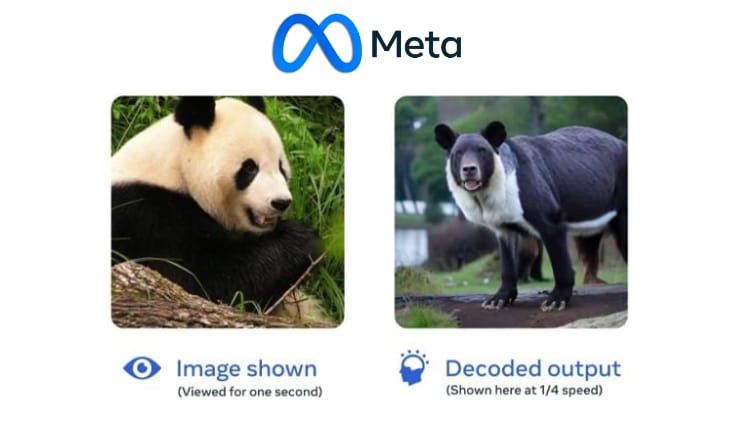Meta’s foray into AI has taken a more intriguing and slightly uncanny direction as they explore the realm of emulating human thinking. In their most recent research venture, Meta has set out on an ambitious mission to decipher how the human brain interprets visual information, with the ultimate goal of replicating thought processes that resemble those of humans. The company has provided an early glimpse into this endeavor through an AI research paper, in which they outline the “Brain Decoding” procedure, a method that seeks to mirror the activity of neurons and delve into the intricacies of human cognition.
The core idea of this project is truly captivating. Meta’s AI system, as explained by the company, can instantly reconstruct images based on human brain activity. This presents a thrilling opportunity for the scientific community to understand how the brain encodes images, which is fundamental to human intelligence. The process involves an image encoder creating diverse image representations, and a brain encoder aligning these with magnetoencephalography (MEG) signals.
Notably, artificial neurons in the algorithm respond remarkably similarly to those in the human brain when shown the same images. The ultimate goal is to Create AI that thinks and responds like a human, aligning with the broader goals of advanced AI research.
Meta’s articulation of these AI advances may spark disquiet among some as it delves into the complex territory of simulating human brain activity, pushing the boundaries of AI capabilities and raising ethical questions. This research suggests the potential for AI systems to closely mimic human thinking, with intriguing yet science fiction-like implications, particularly regarding the ethical and societal impacts of AI systems engaging with humans in human-like ways.
Despite concerns, Meta sees promising uses, particularly in helping people with brain injuries or communication challenges. This tech could open new avenues for them, advancing assistive technology. Meta began this project in 2017, shifting from brain implants to MEG tracking for brain activity. With a history of data controversies, Meta’s venture into mind-reading AI warrants a closer look at its potential impacts.
Meta’s endeavor is an emblem of the remarkable progress in AI research, ushering in a new era of technology that raises both excitement and ethical considerations. As technology advances rapidly, we find ourselves at the cusp of a transformative era where AI systems closely mimic human thought and behavior. The journey is undeniably intriguing, albeit a bit perplexing.
For more updates, be with Markedium.














































Leave a comment